
Too often my conversations with God sound like a long list of things I want. They resemble a child’s Christmas wish list instead of worship of the Almighty. That’s when I go back to the beginning–the ABCs of Praise.
Yes, my prayers almost always include petitions for what I want Him to do for me. Sometimes I add thanksgiving for things He has already done.
But I forget to praise Him for simply who He is.
Praise appreciates God for His character and not only for what He can do for me. It acknowledges God as a person to be appreciated, a Sovereign Being to be worshiped and not simply a genie to do my bidding.
And even when I purposefully set my mind to praise mode, my mind wanders. I pray, “I praise You, Lord, for Your Might, for Your Awesome power in creation.” But the next second I think, “Remember to pick up shredded cheese for tonight’s tacos.” I chide myself and pick up where I left off, “I praise You, Lord, for Your Omniscience, You always know the end before the beginning. You know what is best for me.” But then I think, “Remember to call the dentist to make an appointment.” And on it goes.
Learning from King David and the Psalms
I often look to King David and his book of psalms for instruction in the art of worship. David’s psalms are full of praise for God’s goodness, strength, honor, wisdom.
For example, Psalm 34 begins:
I will extol the Lord at all times;
his praise will always be on my lips.
I will glory in the Lord;
let the afflicted hear and rejoice.
Glorify the Lord with me;
let us exalt his name together. (verses 1-3)
This psalm uses an interesting technique–using the Hebrew alphabet as an acrostic. Each verse of the psalm begins with a successive letter of the Hebrew alphabet.
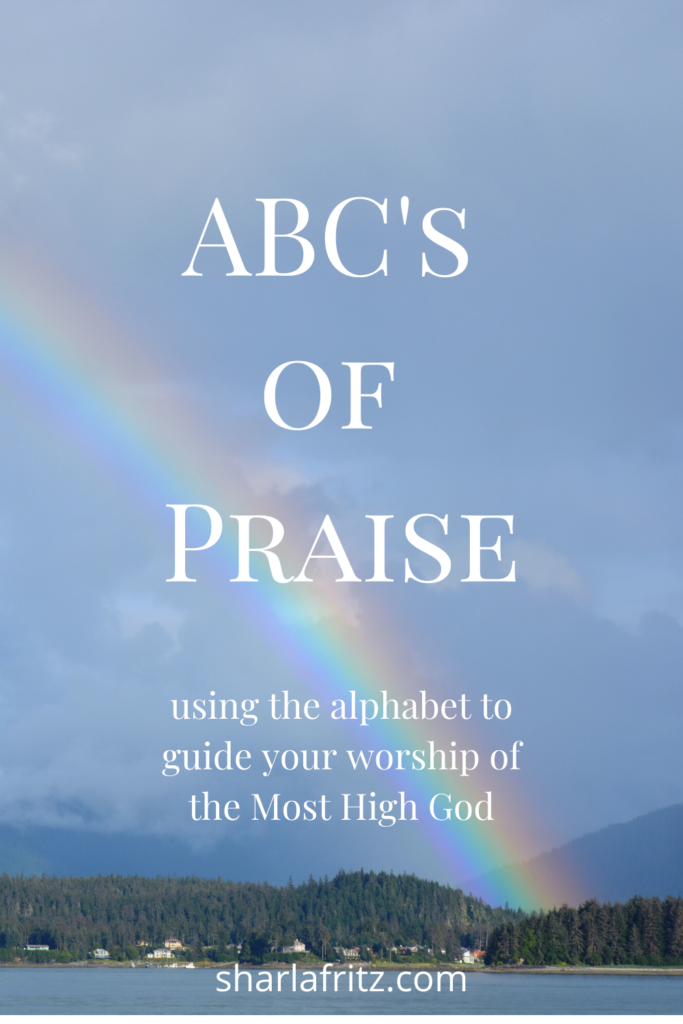
Using the ABCs of Praise
I have also found that using our alphabet helps me focus my mind when I truly want to praise God. During my time of worship, I praise God for attributes that begin with each letter of the alphabet. For instance, “I praise you God for Your Almighty power, I marvel in Your Beauty, and I am moved by Your Compassion.”
This technique keeps my mind from wandering back to my to-do list when I truly want to be concentrating on God. It helps me to be creative as I strive to find new attributes of God each time I go through the alphabet. Praising God for His character enables me to know God in a deeper way. It strengthens my faith as I concentrate on His goodness and strength.
Try praising God through the alphabet!
The ABCs of Praising God
Use the alphabet to praise God for who He is. Here are a few ABCs of Praise to get you started.
A Abba Father
B Beginning and End
C Comforter
D Defender
E Everlasting
F Faithful
G Generous
H Holy
I Immortal
J Just
K Kind
L Loving
If you want even more suggestions, check out this printable (pictured below.) It includes the whole alphabet and has more than 100 ways to praise God through the alphabet. Print it out, keep it by your Bible, and use it to guide your praise session of the Most High God!
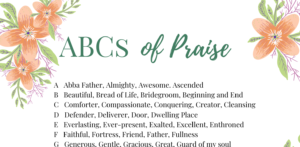
Next Step: Click here to get this helpful resource. May your praise for our awesome God grow as you work through the list of God’s awesome qualities!





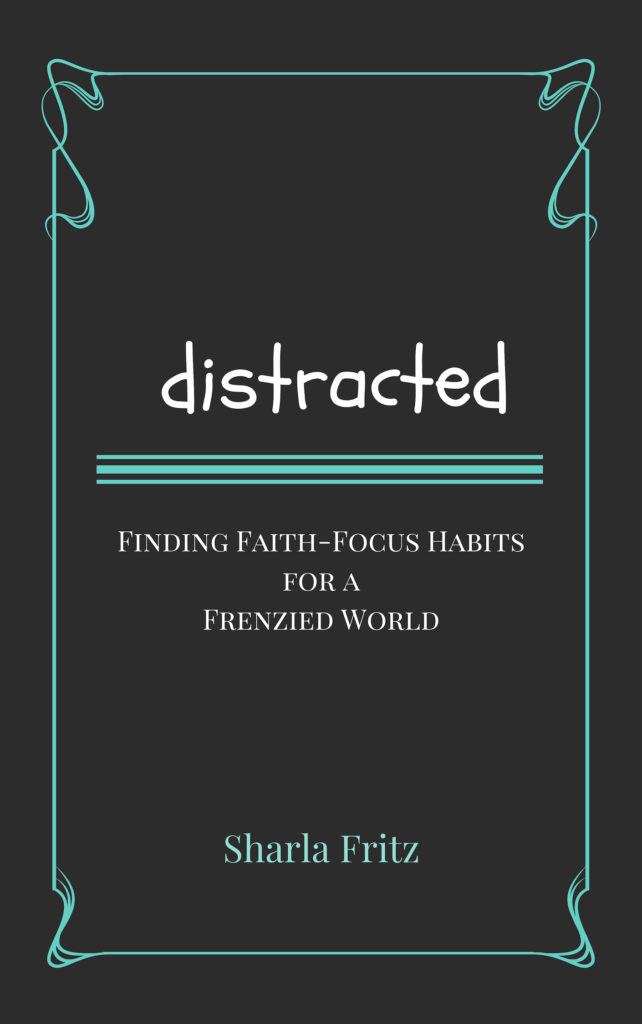











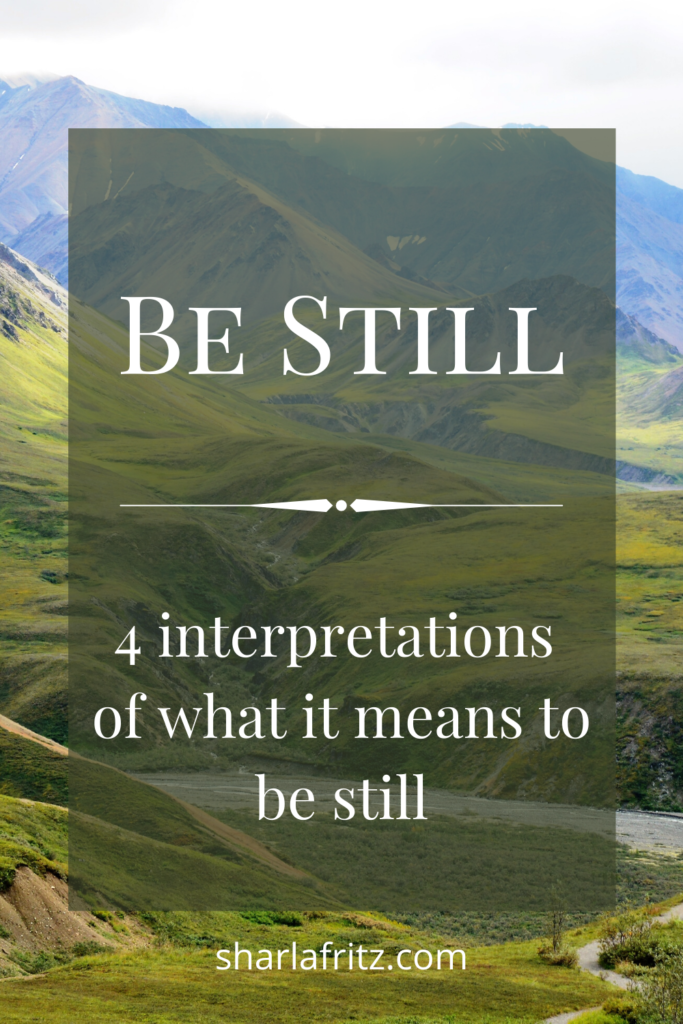








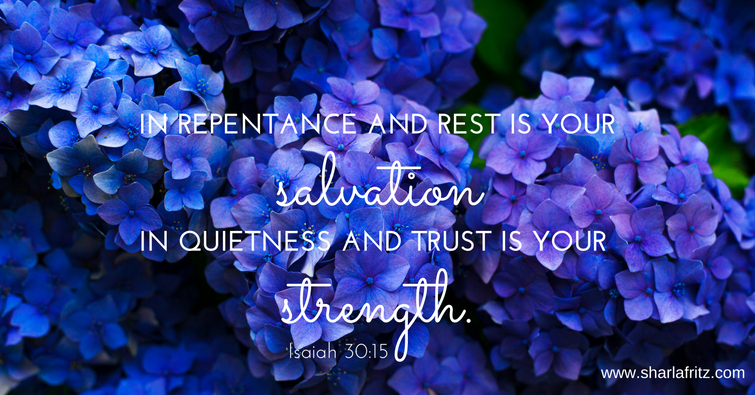





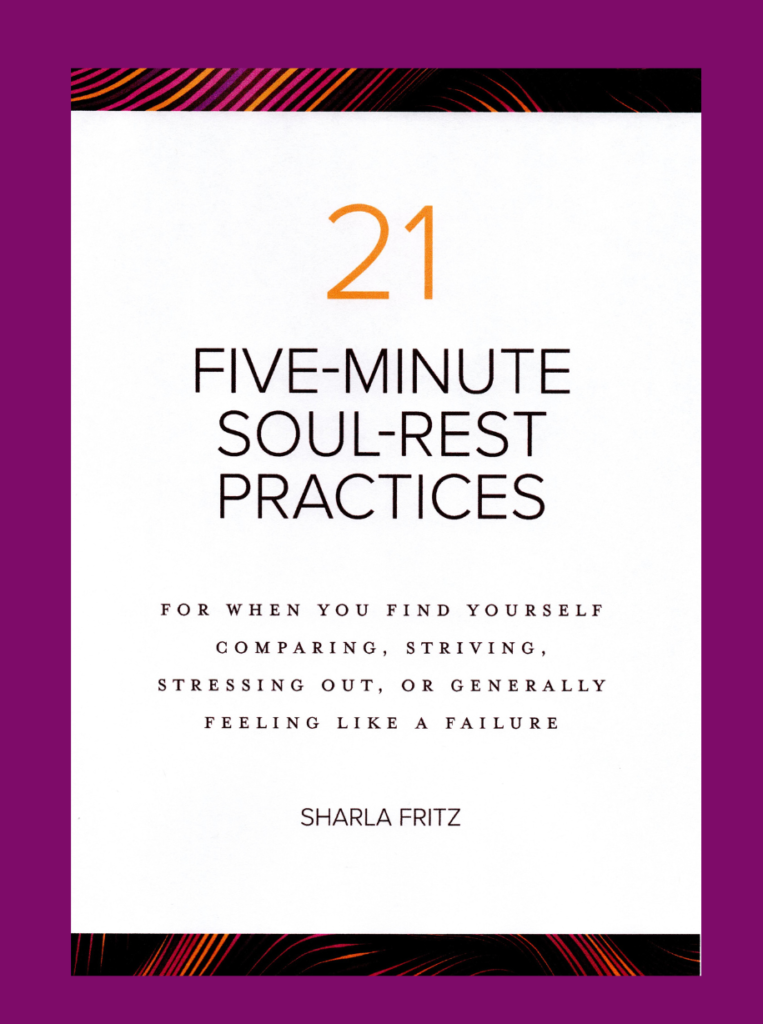
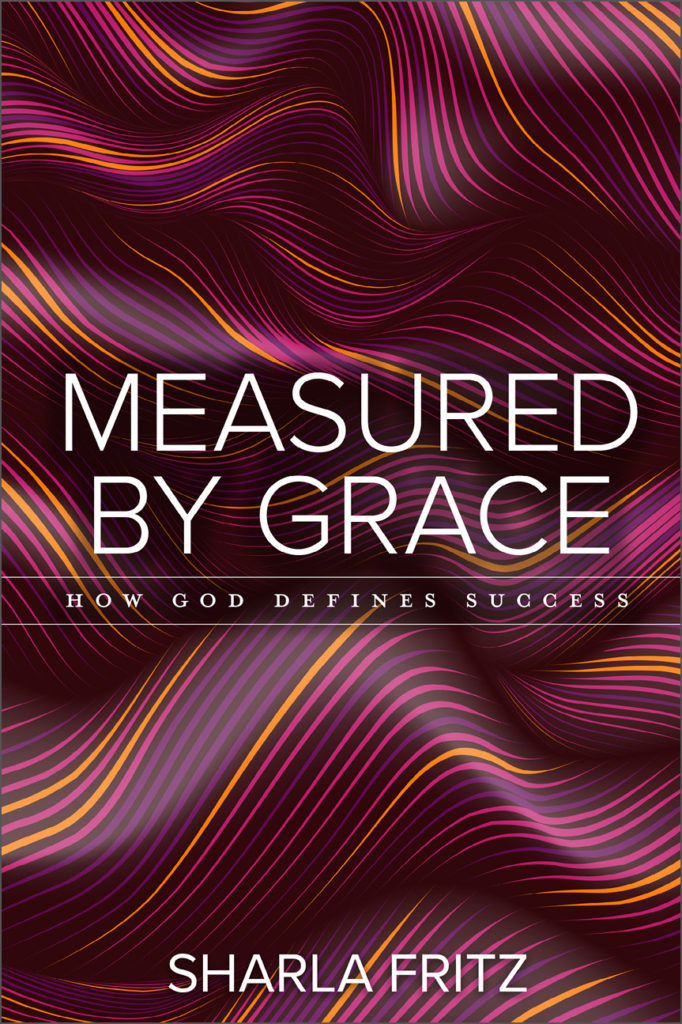

Follow Me!